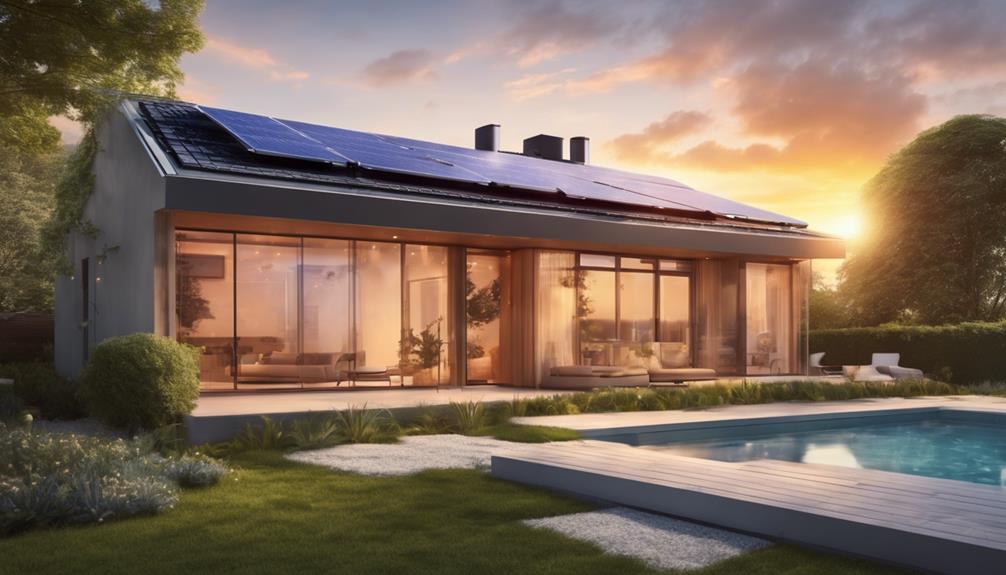
Sheds are often overlooked when it comes to energy solutions, but installing a **solar panel for shed** can be a game-changer. Not only does it provide a sustainable energy source for lighting and tools, but it also reduces your carbon footprint and energy costs. In this comprehensive guide, you’ll learn everything you need to know about selecting the best solar panel for your shed, including installation tips, maintenance advice, and the benefits of going solar.
##
Understanding the Benefits of a Solar Panel for Shed
Installing a **solar panel for shed** has numerous advantages. First and foremost, it allows you to harness the power of the sun, providing a renewable energy source that can power lights, tools, and other appliances. This eco-friendly solution can significantly reduce your electricity bills, especially if you use your shed frequently. Additionally, a solar panel can increase the overall value of your property, making it an appealing feature for potential buyers. Lastly, a solar-powered shed can enhance your lifestyle, offering off-grid capabilities for hobbies, gardening, or DIY projects.
##
Assessing Your Energy Needs for Your Shed
Before purchasing a **solar panel for shed**, it’s essential to evaluate your energy requirements. Start by calculating the total wattage of all the devices you plan to run in your shed. Common items include lights, power tools, and small appliances. For example, LED lights typically use about 10 watts each, while power tools can range from 500 to 1500 watts. Once you have a clear understanding of your energy consumption, you can determine the size of the solar panel system you need. This assessment will help you avoid over or under-purchasing equipment, ensuring optimal performance.
##
Choosing the Right Solar Panel Type
When selecting a **solar panel for shed**, you’ll encounter various types of solar panels, including monocrystalline, polycrystalline, and thin-film options. Monocrystalline panels are known for their high efficiency and longevity, making them a popular choice for limited spaces like sheds. Polycrystalline panels are often more affordable but may take up more space and be less efficient. Thin-film solar panels are lightweight and flexible, but they require more area to generate the same amount of energy. Consider your space, budget, and energy needs when choosing the right type of solar panel for your shed.
##
Understanding Solar Battery Storage Options
To maximize the benefits of a **solar panel for shed**, consider integrating a solar battery storage system. This technology allows you to store excess energy generated during the day for use at night or during cloudy weather. Lead-acid batteries are the most common choice, but lithium-ion batteries offer longer lifespans and better efficiency. When selecting a battery, ensure it has enough capacity to meet your energy needs, taking into account your average daily consumption and any potential expansion in the future.
##
Installation Tips for Your Solar Panel System
Installing a **solar panel for shed** can be a DIY project or a job for professionals, depending on your skill level. If you choose the DIY route, start by selecting an appropriate location for your solar panel—ideally, a spot that receives direct sunlight for most of the day. Ensure the panel is mounted securely and at the correct angle to maximize sun exposure. Additionally, understand the wiring requirements for connecting the solar panel to your battery and electrical system. If you’re unsure about any aspect of the installation, hiring a professional can save you time and ensure everything is set up correctly.
##
Maintaining Your Solar Panel System
To ensure your **solar panel for shed** operates efficiently over time, regular maintenance is crucial. Start by cleaning the panels periodically to remove dirt, debris, or snow that could block sunlight. Inspect the wiring and connections for any signs of wear or damage, and ensure that the battery is functioning correctly. It’s also wise to monitor your energy production and consumption to identify any issues early on. Many solar systems come with monitoring software that can help you track performance and detect potential problems.
##
Cost Considerations: Budgeting for Solar Panels
The cost of a **solar panel for shed** can vary widely based on the size and type of the system you choose. On average, a small solar panel system suitable for a shed can range from $200 to $2000, depending on your energy needs and the quality of the components. Additionally, consider potential installation costs, which may range from $100 to $500 if you opt for professional help. While the initial investment may seem high, the long-term savings on energy bills and potential tax incentives can make it a worthwhile investment.
##
The Future of Solar Energy for Sheds and Beyond
As technology advances, the future of solar energy looks promising, and this includes the potential for **solar panels for sheds**. With decreasing costs and increasing efficiency, more homeowners are turning to solar solutions for their outbuildings. Moreover, innovations like smart solar panels and integrated energy management systems are making it easier than ever to optimize energy use. As awareness of environmental issues grows, investing in solar energy not only benefits your wallet but also contributes to a more sustainable future.
## Conclusion
Choosing a **solar panel for shed** offers numerous benefits, from cost savings to enhancing your property’s value. By assessing your energy needs, selecting the right type of solar panel, and maintaining your system properly, you can enjoy a reliable and sustainable energy source for your shed. Whether you choose to install it yourself or hire a professional, the shift to solar energy is a step towards a greener lifestyle. As the technology continues to evolve, the possibilities for solar energy in your shed and beyond are endless. Take the plunge into solar energy today and start reaping the rewards!





